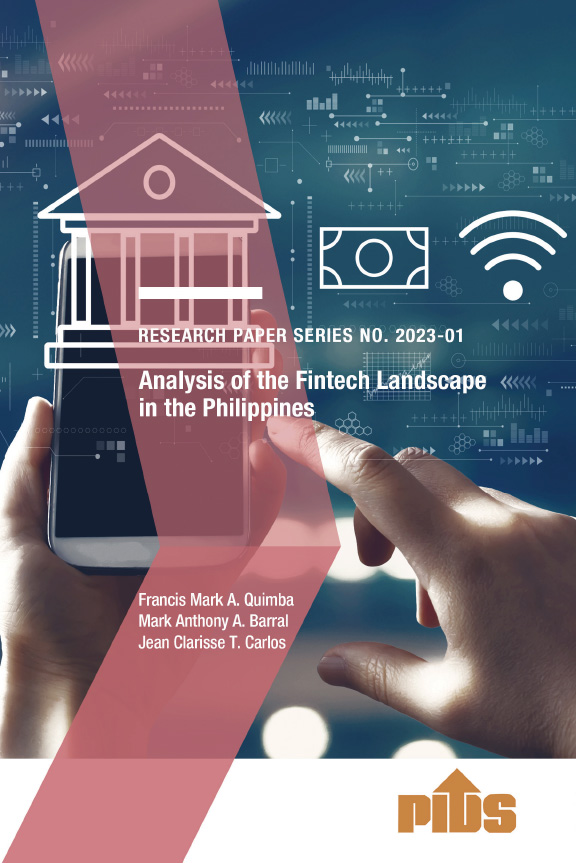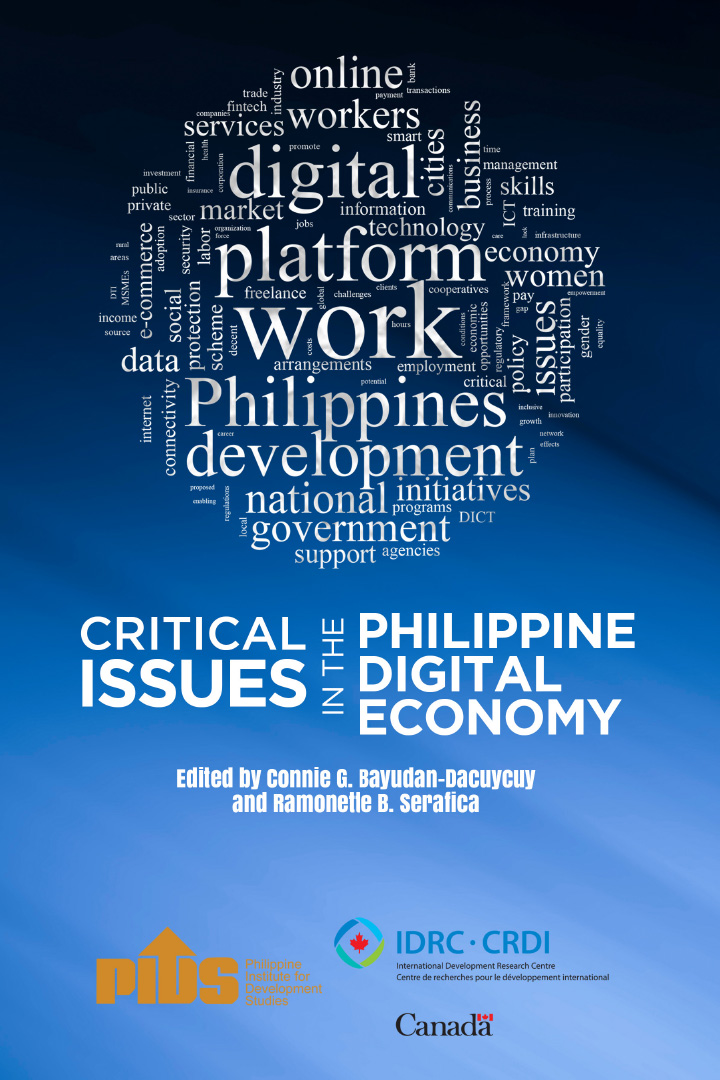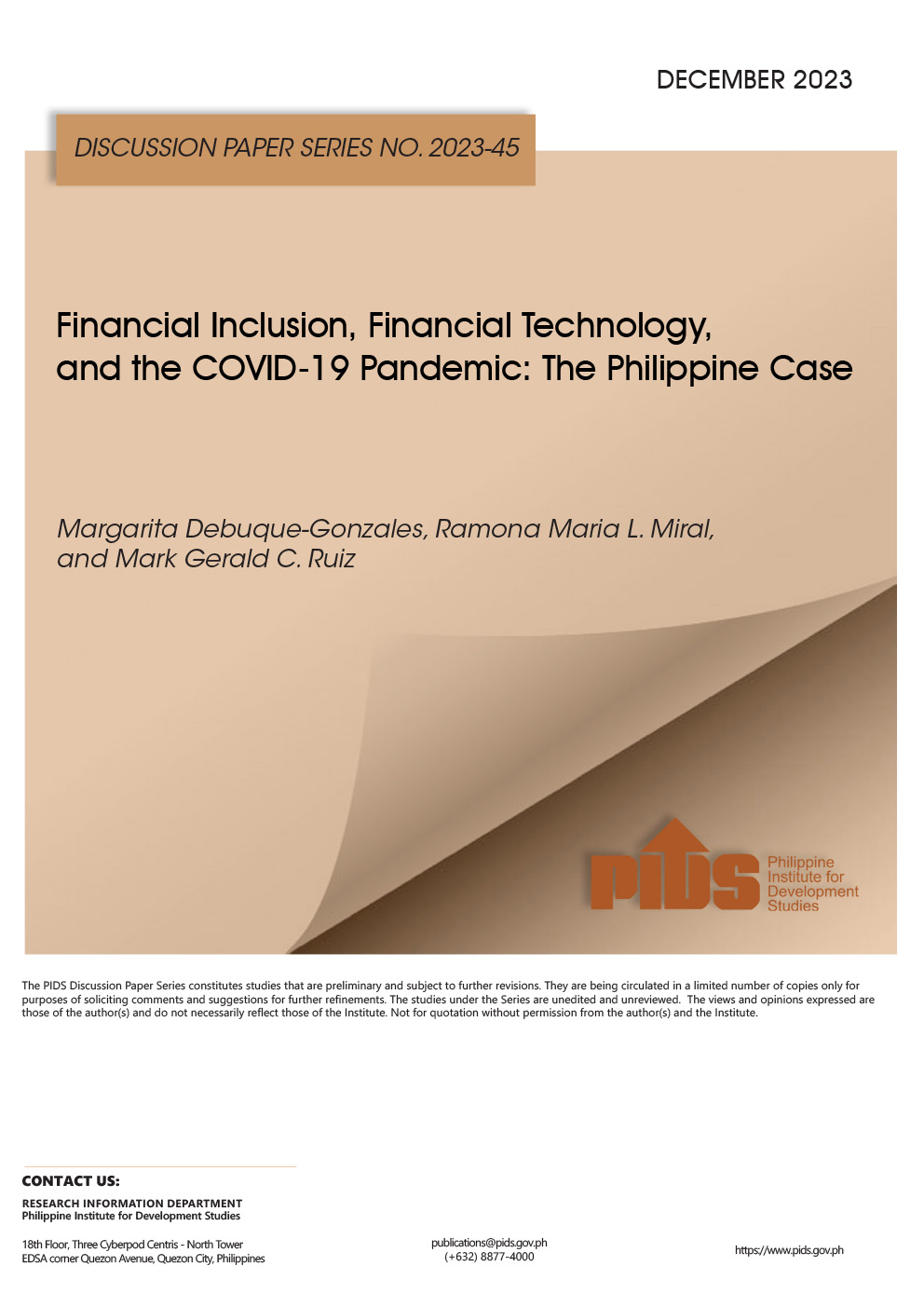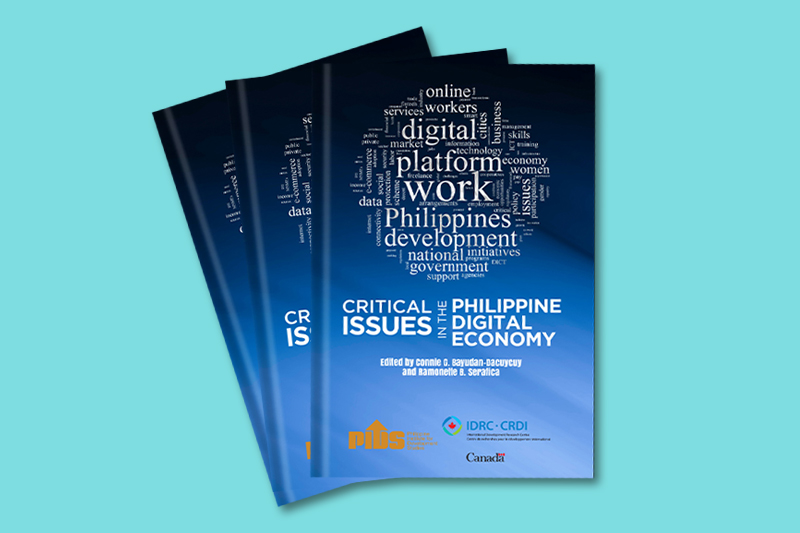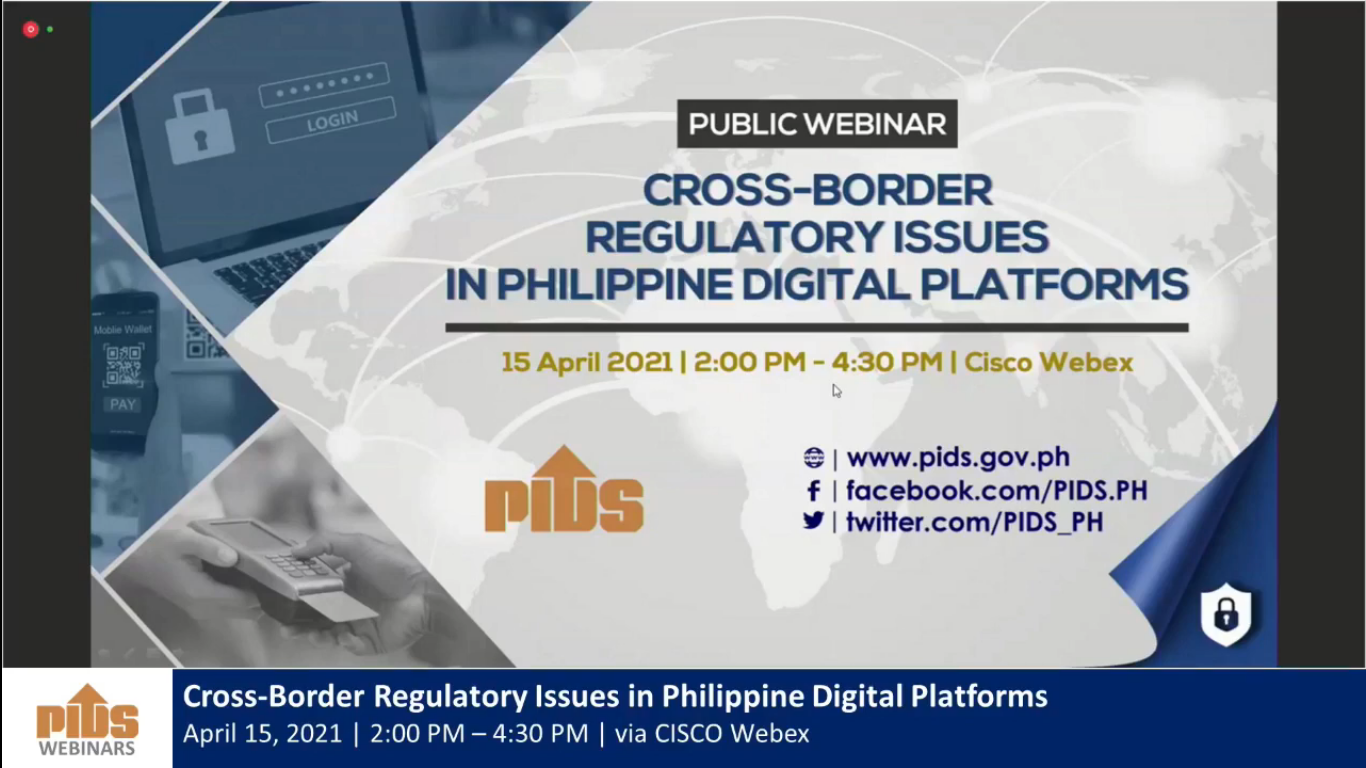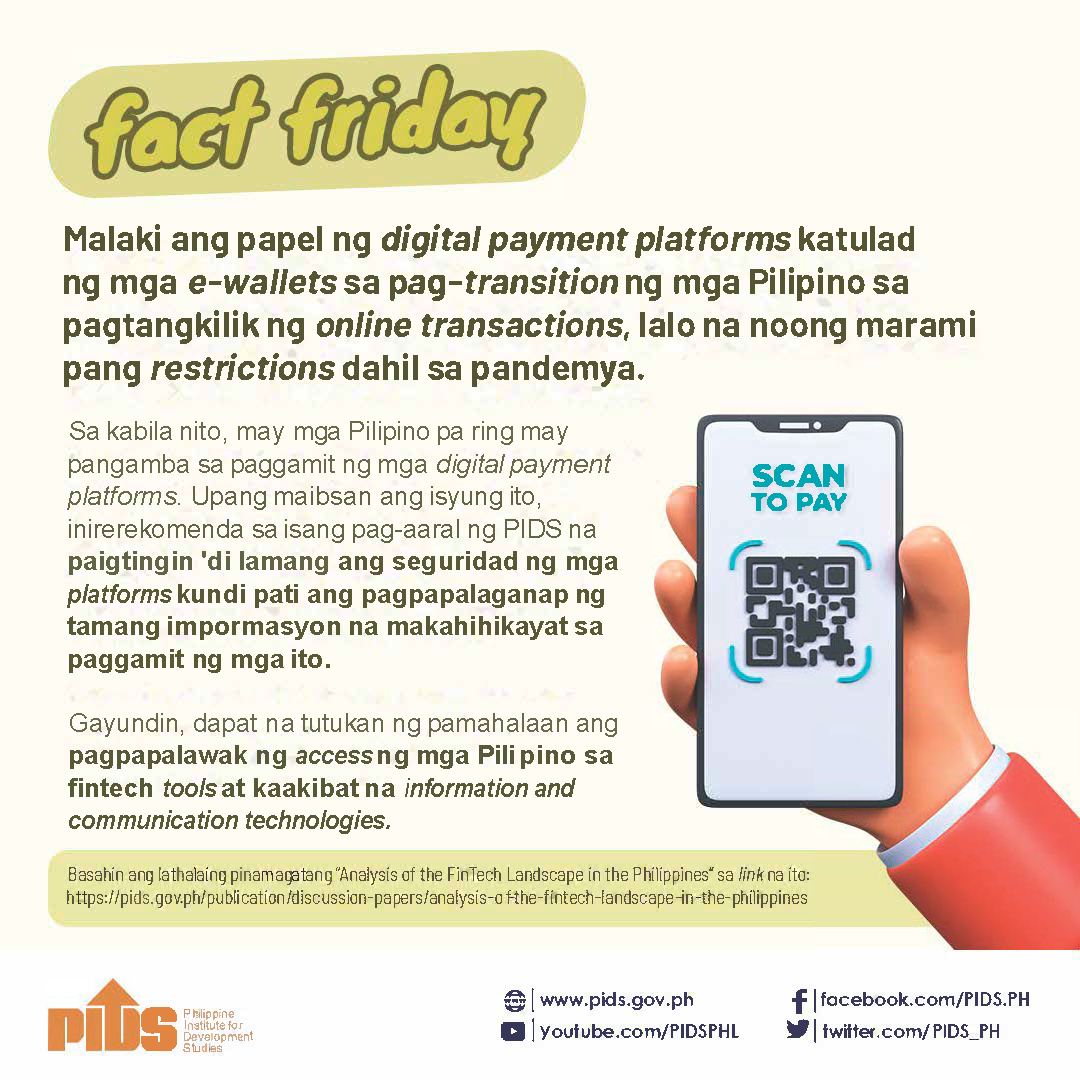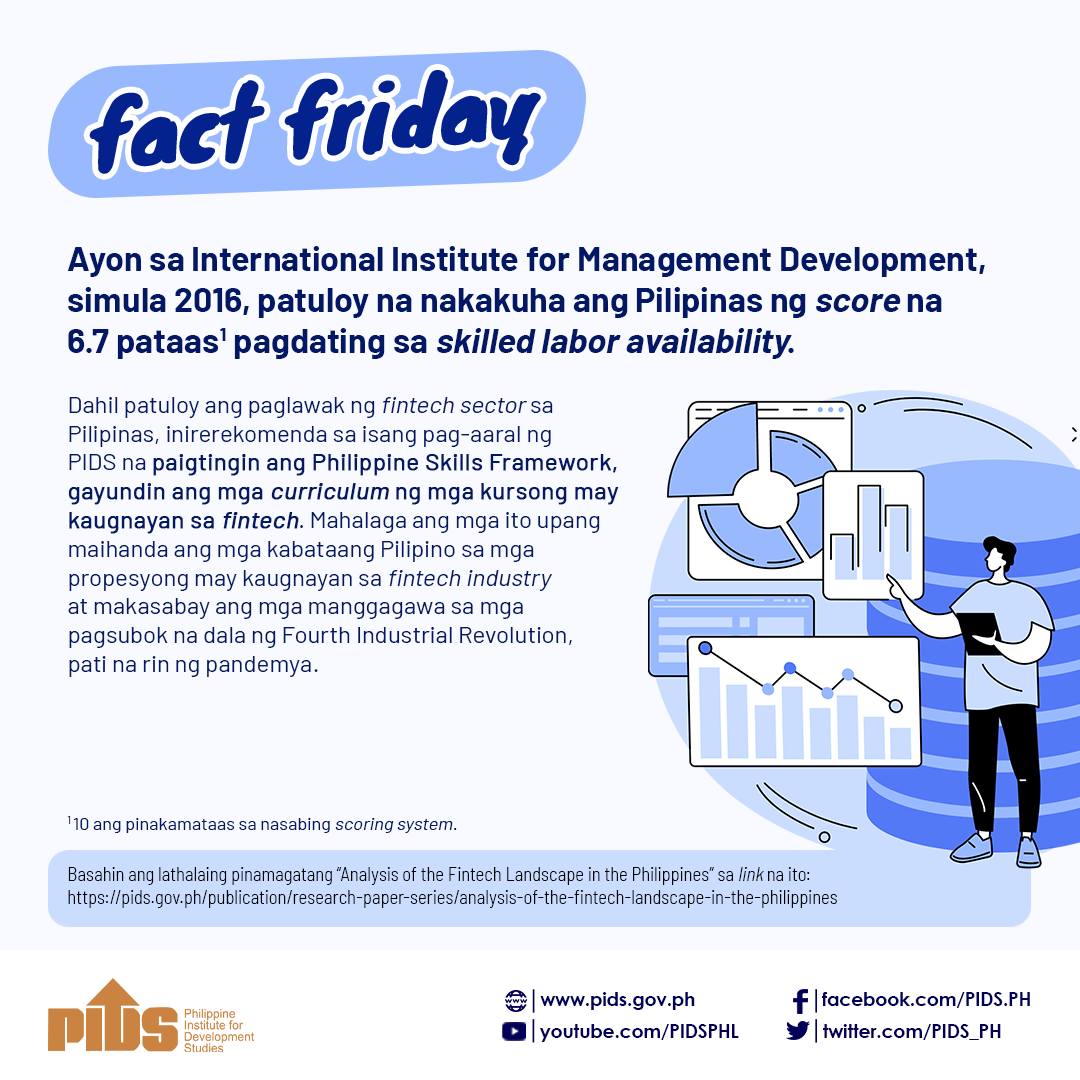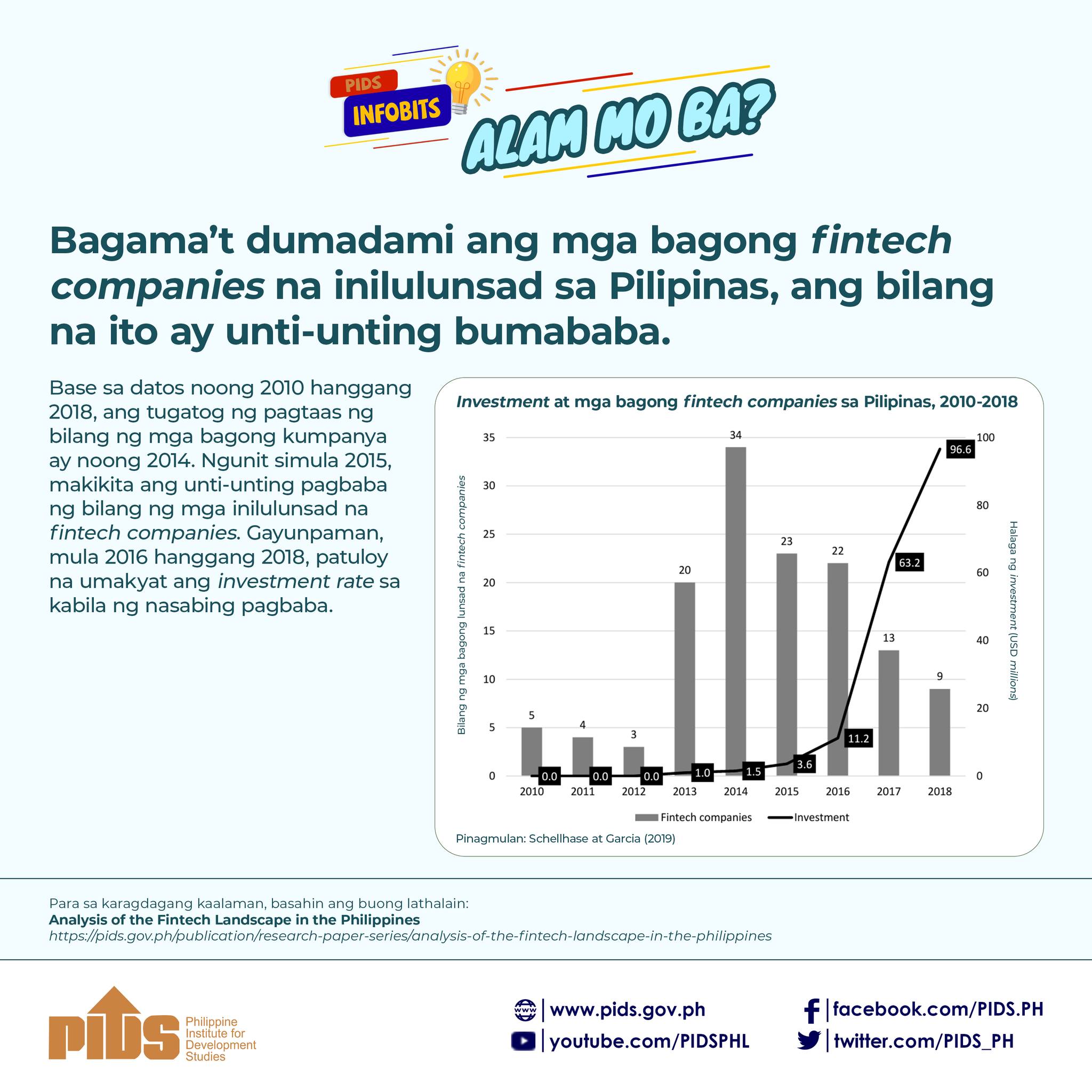
As financial technology (fintech) platforms proliferate, the Bangko Sentral ng Pilipinas (BSP) has launched a number of initiatives aimed at establishing adequate safeguards to manage the potential risks brought by these new technologies while providing enough room for companies to develop and implement their innovations.
Speaking in the public symposium organized by state think tank Philippine Institute for Development Studies (PIDS) on “Rethinking Regulations in the Era of the Fourth Industrial Revolution”, a BSP official maintained the central bank exercises proportionality in the practice of supervision.
“We have to be very flexible in understanding how a product operates. Regulations must be commensurate to the risks posed by the product or entity,” Lyn Javier, managing director of the BSP’s Policy and Specialized Supervision Sub-Sector, said.
Fintech, or financial innovations enabled by digital technology, can help a lot in improving the delivery of financial services and reaching customers currently underserved by traditional financial institutions. However, the BSP maintained that an effective risk management should be in place to ensure a level playing field and consumer protection.
“It is a balancing act, so to speak, so that the industry can take full advantage of innovations without compromising consumer protection, security, and financial stability,” Javier explained.
Using the “test and learn” approach (also called “regulatory sandbox” approach), the BSP allows fintech companies to introduce their products in a controlled environment. This way, BSP is able to observe them and better understand how they work and how they are able to manage their risks before drafting appropriate regulations.
This was the approach used by BSP in 2004 when the e-money was first introduced through G-Cash and Smart Money. “It was only in 2009 when we issued regulations on e-money, having a better understanding about the product and the risks they pose to the consumers and the industry,” Javier explained.
To better regulate fintech services, the BSP has also created the Financial Technology Sub-Sector to oversee digital payments programs and supervise registered financial institutions that offer electronic products and services. It is also looking at using blockchain technology in assessing the cyber risk resilience of financial institutions.
The Philippine Fintech Landscape
Fintech is growing steadily in the Philippines with payments being the most crowded segment, representing 33 percent of all fintech players in the Philippines.
With a population of over 100 million, a mobile penetration that is expected to hit 71 percent in 2020, and a large portion of population that remains unbanked, the Philippines is a fertile ground for fintech innovations. Latest data from the BSP show that only about three in every 10 Filipino adults have a formal bank account and 99 percent of all transactions as of 2015 were still cash- and paper-based.
The application of fintech in the financial industry cuts across different transactions and services such as credit and deposit services, payments and settlement services, as well as investment management services.
As of June 2018, internet banking and electronic money issuers continue to dominate the fintech sector with 46 and 40 banks offering these services, respectively. This was followed by mobile applications with 29 banks, and mobile banking services with 26 banks, facilitating real-time transfer of payment and settlement transactions.
According to Javier, the BSP supports responsible fintech innovation, not only because it provides greater efficiency, but it has the potential to advance BSP's cause for financial inclusion.
The BSP also uses fintech internally to improve its processes and supervisory methodologies. For example, it uses an application programming interface (API), a machine-to-machine interface, to analyze and generate statistics and reports for its surveillance and supervisory methodology. Chatbots are also currently used by the bank in responding to consumer complaints and issues. ###

